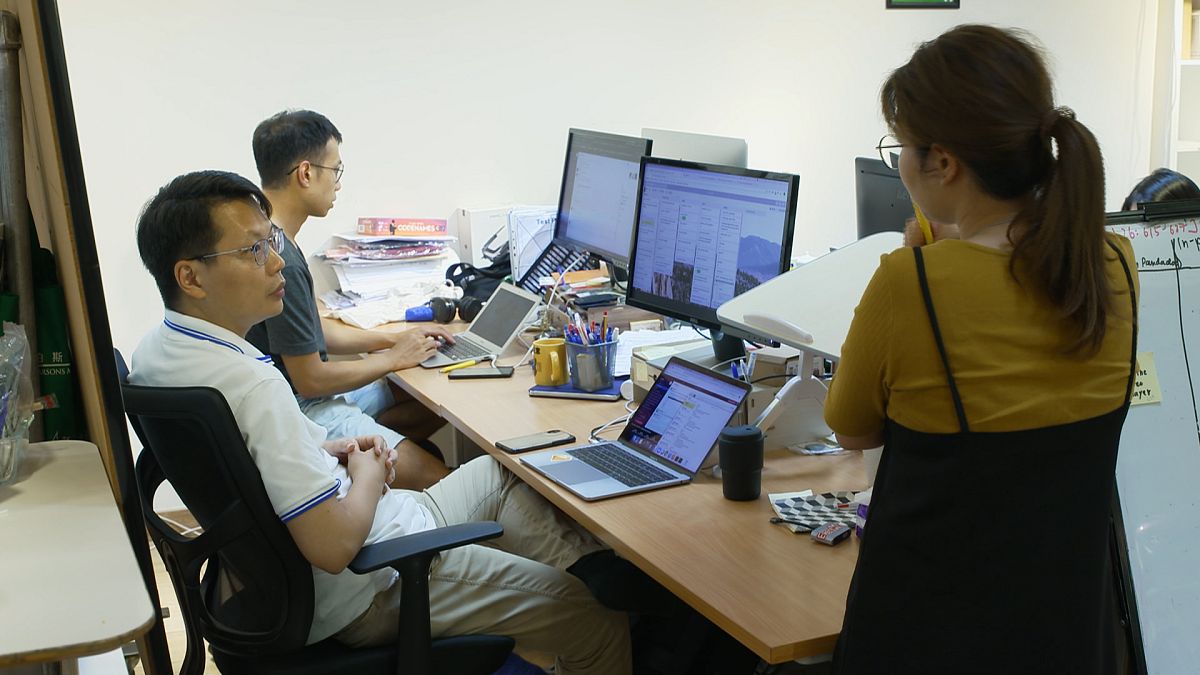As the world struggles with the coronavirus pandemic, Spotlight explores how Hong Kong's start-up and cultural scene is adapting.
As the world struggles with the coronavirus pandemic, Spotlight explores how Hong Kong's start-up and cultural scenes are thriving through a hybrid of on and offline events.
Hong Kong is open for business. Even during the coronavirus pandemic, its economy and cultural activities have continued, thanks to quick action to control the virus’ spread, and a lot of adaptation.
The pandemic did put the brakes on a number of events, but not for long. Hong Kong moved quickly and early to bring the outbreak under control. With only about 1,100 people infected, and few fatalities, in a city of 7.5 million, Hong Kong forged ahead.
Going virtual
One event going virtual in July is StartmeupHK Festival. Usually a bustling conference connecting start-ups and investors, it's going online. We spoke with the head of StartmeupHK, Invest Hong Kong, Jayne Chan.
**"**What we're trying to do is trying to preserve the best of the face-to-face interactions you get at physical events, with the best of the virtual aspects of it," Chan said. "We've got world-renowned industry figures who are going to be talking about a number of subjects such as smart cities, retail technology, AI, fintech, everything that Hong Kong is really strong on, and we're going to marry that with a job fair and one-to-one investor matching and biz matching," she added.
Also supporting Hong Kong's start-ups is Cyberport, the city's leading incubator for 1,560 of them.
Eric Chan is the Chief Public Mission Officer for Cyberport: "All start-ups in Cyberport are getting free rental as a waiver, as subsidies from the government. The government is also giving subsidies for people to keep their jobs as well as creating new jobs. Our start-ups are actually reacting very fast as well. Indeed they've come up with a lot of solutions which have helped Hong Kong."
One start-up from Cyberport that is well-positioned to help organisers adapt to the pandemic is EventXtra. It's organised thousands of on- and offline events for leading companies like Alibaba, Siemens and Honeywell. Sum Wong is CEO and co-founder.
"The event is the front-line industry in the pandemic because all the events need to be on hold or cancelled, just like airlines or travel...because we have a hybrid solution, almost 80% of our revenue is actually from the virtual event, and I would say the total revenue jumped more than 300% during pandemic time," Sum explained.
Culture during COVID
Hong Kong's cultural scene, and its art market, have been adapting online during the pandemic as well. The offline events are firing up again, though observing social distancing, with help from Art Power HK, an online platform that began in the middle of the pandemic, now with more than 130 partners.
Alice Mong is on the working group for Art Power HK. She heads Asia Society Hong Kong, one of the venues participating with Art Power.
"We were never under a lockdown, so there were activations of galleries, exhibitions, events," explained Mong, adding: "We are working with the artists to make sure that their art is seen, or experienced. Maybe in this day of social distancing, can't be seen live, but they can be seen on a digital platform.
Hong Kong's cultural scene continues to grow in a big way. The M+ museum is completing construction and is scheduled to open next year. It's the latest addition to the sprawling West Kowloon Cultural District, built from the ground-up.
Mong sums up by saying: "Every year, we have something coming up that's celebrating art, and the voice of artists and that's what's so exciting about Hong Kong's art ecosystem today."

